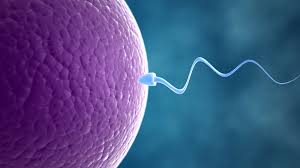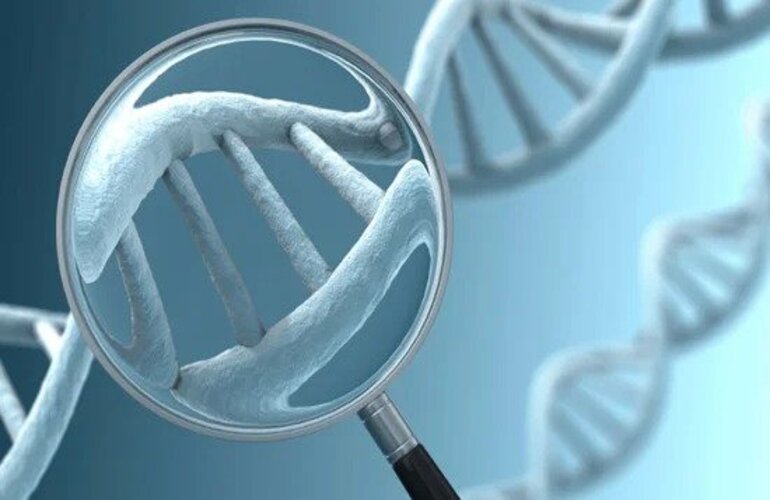Understanding Infertility A Genetic Perspective
Infertility is a heart-wrenching condition that affects many couples around the world. It is a topic that is often surrounded by misconceptions and misunderstandings. However, by taking a genetic perspective, we can gain a deeper understanding of the causes and potential solutions for infertility.
Genetic factors play a crucial role in infertility. Various genetic abnormalities can affect both males and females, leading to difficulties in conceiving. In women, genetic conditions such as polycystic ovary syndrome (PCOS) and chromosomal abnormalities can disrupt the ovulation process. On the other hand, genetic defects, hormonal imbalances, and abnormal sperm production can impact male fertility.
Genetic testing has revolutionized the field of infertility. It allows healthcare professionals to identify specific genetic factors that may be contributing to a couple’s infertility. By analyzing the genetic makeup of both partners, doctors can pinpoint any genetic abnormalities that may prevent successful conception. This knowledge can guide the development of personalized treatment plans and increase the chances of a successful pregnancy.
- Benefits of genetic testing in infertility:
| 1. Accurate diagnosis: | Genetic testing provides a more accurate diagnosis of the underlying cause of infertility. It helps rule out any genetic factors that may be contributing to the couple’s struggles to conceive. |
|---|---|
| 2. Tailored treatment: | Once the genetic factors contributing to infertility are identified, healthcare professionals can develop personalized treatment plans. This targeted approach improves the effectiveness of treatments and increases the likelihood of conception. |
| 3. Family planning: | Genetic testing provides invaluable information for family planning. It helps couples understand the likelihood of passing on genetic conditions to their children and allows them to make informed decisions regarding fertility treatments or alternative options, such as adoption or donor conception. |
Genetic counseling plays a significant role in assisting couples dealing with infertility. This specialized form of counseling provides a supportive environment for couples to discuss their concerns, understand the genetic factors involved, and explore various fertility options. Genetic counselors educate couples about the inheritance patterns of genetic conditions, potential risks, and available treatment options, empowering them to make informed decisions regarding their reproductive health.
 Advancements in genetic solutions offer hope for improved fertility outcomes. Techniques such as preimplantation genetic testing (PGT) allow healthcare professionals to identify and transfer embryos free of specific genetic disorders into the uterus, reducing the risk of passing on inherited conditions. Furthermore, scientific research continues to explore innovative technologies such as gene editing, which holds the potential to correct genetic abnormalities and improve fertility outcomes in the future.
Advancements in genetic solutions offer hope for improved fertility outcomes. Techniques such as preimplantation genetic testing (PGT) allow healthcare professionals to identify and transfer embryos free of specific genetic disorders into the uterus, reducing the risk of passing on inherited conditions. Furthermore, scientific research continues to explore innovative technologies such as gene editing, which holds the potential to correct genetic abnormalities and improve fertility outcomes in the future.
In conclusion, understanding infertility from a genetic perspective provides valuable insights into the causes and potential solutions for this challenging condition. Genetic testing, genetic counseling, and emerging genetic solutions offer hope for couples struggling with infertility. With continued advancements in the field, we can pave the way for improved fertility outcomes and fulfill the dreams of aspiring parents.
Genetic Factors Influencing Infertility
Infertility is a complex issue that affects numerous couples around the world. While there can be various causes for infertility, recent research has highlighted the significant role of genetic factors in influencing a couple’s ability to conceive. Genetic factors can contribute to both male and female infertility, impacting the reproductive health of individuals. In this blog post, we will delve into the fascinating world of genetic factors that play a role in infertility and explore their implications.
1. Genetic Mutations: Certain genetic mutations can cause disruptions in the normal functioning of reproductive organs, leading to infertility. These mutations can occur in genes responsible for the synthesis of hormones critical for fertility, or genes involved in the development of reproductive organs.
2. Genetic Disorders: Some individuals may carry genetic disorders that can directly impact their fertility. For example, conditions such as Turner syndrome, Klinefelter syndrome, or polycystic ovary syndrome (PCOS) can hinder normal reproductive processes, making it harder for individuals to conceive naturally.
3. Genetic Variations: Variations in specific genes involved in fertility can contribute to infertility. These genetic variations can affect the quality or quantity of gametes (eggs and sperm), impairing their ability to fertilize or implant successfully.
Understanding the Impact
The influence of genetic factors on infertility can have wide-ranging effects on couples trying to conceive. It is essential to unravel these genetic influences to develop personalized treatment approaches and improve fertility outcomes for couples struggling with infertility.
Genetic Testing: A Powerful Tool
Advancements in science and technology have made genetic testing a valuable tool in detecting genetic factors influencing infertility. By analyzing the DNA of individuals, genetic testing can identify specific genetic mutations, disorders, or variations that may be causing infertility. This information can help healthcare professionals determine the most effective treatment options and provide couples with valuable insights into their reproductive health.
Genetic Counselling: Empowering Couples
When faced with infertility, couples often experience emotional distress and uncertainty. Genetic counseling plays a crucial role in providing support and empowering couples facing infertility. Genetic counselors are trained professionals who can help couples understand the genetic factors contributing to their infertility, explore available treatment options, and make informed decisions about their reproductive journey.
Understanding the role of genetic factors in infertility is vital in the field of reproductive health. Genetic mutations, disorders, and variations can significantly impact an individual’s fertility and their chances of conceiving naturally. Genetic testing and counseling can be powerful resources to diagnose and address these genetic factors, ultimately improving fertility outcomes for couples worldwide.
The Role Of Genetic Testing In Infertility
Infertility is a challenging condition that affects many couples around the world. It can be a complex and frustrating journey, with various factors contributing to the inability to conceive. One important aspect that often goes unnoticed is the role of genetics in infertility. Genetic testing has emerged as a powerful tool in understanding the underlying causes of infertility and has opened up possibilities for personalized and effective treatment options.
Genetic testing plays a crucial role in diagnosing infertility by identifying specific genetic mutations or variations that may be affecting fertility. This type of testing can help uncover hidden genetic disorders, chromosomal abnormalities, or gene mutations that impact reproductive health. By identifying these genetic factors, healthcare professionals can develop targeted treatment plans and provide couples with valuable information about their prognosis and potential risks.
One particular area where genetic testing has shown significant promise is in preimplantation genetic testing (PGT). PGT involves examining embryos created through in vitro fertilization (IVF) for specific genetic abnormalities before they are transferred to the uterus. This diagnostic tool allows researchers to select only healthy embryos, thereby reducing the risk of implanting embryos with genetic defects that may lead to infertility or recurrent miscarriages.
Genetic testing can also aid in the identification of inherited conditions that may affect fertility. Some genetic disorders, such as polycystic ovary syndrome (PCOS), endometriosis, and premature ovarian insufficiency (POI), can lead to infertility or difficulty in conceiving. By understanding the genetic basis of these conditions, healthcare professionals can offer targeted treatment options and counseling to affected individuals.
- Genetic testing provides valuable insight into the possible causes of infertility and helps healthcare professionals tailor treatment plans.
- Preimplantation genetic testing (PGT) allows for the selection of healthy embryos, reducing the risk of genetic abnormalities in pregnancies.
- Identifying inherited conditions through genetic testing enables healthcare professionals to offer appropriate treatment and counseling.
Genetic counseling is often recommended for couples dealing with infertility. This specialized service involves evaluating the genetic history of both partners and providing information about the potential risks, implications, and treatment options based on their unique genetic makeup. Genetic counselors are trained professionals who can guide couples through the emotional and complex decision-making process associated with infertility treatment.
In conclusion, genetic testing plays a pivotal role in understanding the underlying causes of infertility. It offers valuable insights into genetic mutations, chromosomal abnormalities, and inherited conditions that may impact fertility. By utilizing genetic testing, healthcare professionals can provide personalized treatment options and counseling to improve fertility outcomes. Couples struggling with infertility can find hope and support through the advancements in genetic testing, bringing them closer to the dream of starting a family.
Exploring Inherited Infertility Conditions
Infertility can be a challenging and emotionally draining experience for couples hoping to start a family. While there are various factors that can contribute to infertility, one significant aspect that is often overlooked is genetic inheritance. Inherited infertility conditions can have a profound impact on a couple’s ability to conceive naturally. Understanding these conditions and their genetic origins is crucial in developing effective strategies and solutions for couples dealing with infertility.
There are several inherited infertility conditions that can affect both men and women. One common condition is polycystic ovary syndrome (PCOS), which affects women and is characterized by hormonal imbalances that can disrupt ovulation. PCOS has a strong genetic component, with studies showing that it tends to run in families. Another inherited condition is Klinefelter syndrome, which affects men and is caused by an extra X chromosome. This condition can lead to reduced fertility or infertility due to abnormal testicular development and hormone production.
When it comes to exploring inherited infertility conditions, genetic testing plays a crucial role. Genetic testing can help identify specific genetic mutations or variations that may be responsible for infertility in couples. This testing can provide valuable insights into the underlying genetic causes of infertility, enabling healthcare professionals to develop personalized treatment plans and interventions.
| Inherited Infertility Conditions | Main Genetic Factors |
|---|---|
| Polycystic ovary syndrome (PCOS) | Genetic variations affecting hormone regulation |
| Klinefelter syndrome | Extra X chromosome (47, XXY) |
| Turner syndrome | Missing or incomplete X chromosome (45, X) |
Genetic counseling is an essential aspect of managing inherited infertility conditions. Through genetic counseling, couples can gain a better understanding of the potential genetic risks and causes of their infertility. A genetic counselor can provide information about available treatment options, as well as offer guidance and support throughout the infertility journey.
In recent years, advancements in genetic technology and research have opened up new possibilities for improving fertility outcomes. Assisted reproductive techniques, such as in vitro fertilization (IVF) combined with preimplantation genetic testing (PGT), allow healthcare professionals to screen embryos for specific genetic conditions before implantation. This significantly increases the chances of a successful pregnancy and reduces the risk of passing on inherited infertility conditions to future generations.
Exploring inherited infertility conditions is essential in understanding the genetic factors that contribute to infertility. Genetic testing and counseling provide valuable insights into the causes of infertility and enable healthcare professionals to develop personalized treatment approaches. With continued research and advancements in genetic technology, there is hope for improved fertility outcomes for couples dealing with inherited infertility conditions.
Genetic Counseling For Couples Dealing With Infertility
Infertility is a challenging and emotionally distressing issue for many couples. While there can be various causes of infertility, including both male and female factors, genetic factors can also play a significant role. Genetic counseling can be a valuable tool for couples facing infertility, helping them understand the genetic risks and potential underlying causes of their inability to conceive.
Genetic counseling involves an in-depth evaluation of the couple’s medical history, including any known genetic conditions or disorders. This information is crucial to identify potential genetic factors that may be impacting their fertility. By analyzing family pedigrees and conducting genetic tests, counselors can determine the likelihood of certain genetic conditions being passed on to future generations.
During the genetic counseling process, couples are provided with information about the different genetic testing options available to them. These tests can provide valuable insights into the couple’s genetic makeup and help determine if there are any specific genetic factors contributing to their infertility. Genetic counselors explain the benefits and limitations of each test, empowering couples to make informed decisions about their reproductive options.
One of the primary goals of genetic counseling is to provide couples with a clear understanding of their risk of passing on genetic disorders to their children. By identifying potential genetic risks, couples can make well-informed choices about their family planning and explore alternative options such as preimplantation genetic testing (PGT) or adoption.
In addition to discussing the potential genetic causes of infertility, genetic counselors also provide emotional support and guidance to couples during this challenging journey. They offer a safe space for couples to express their feelings and concerns about infertility, helping them navigate through the complex emotions that often accompany the diagnosis.
| Benefits of Genetic Counseling for Couples Dealing With Infertility |
|---|
|
In conclusion, genetic counseling plays a vital role in assisting couples dealing with infertility. It helps them gain a deeper understanding of the genetic factors contributing to their infertility and empowers them to make informed decisions about their family planning. By providing emotional support and guidance, genetic counselors offer couples the necessary tools to cope with the emotional challenges they may face during this difficult time. If you and your partner are struggling with infertility, considering genetic counseling may be a valuable step towards achieving your dream of starting a family.
Genetic Solutions For Improved Fertility Outcomes
Infertility is a common and challenging issue that affects many couples worldwide. While there can be various contributing factors to infertility, including lifestyle choices and medical conditions, there is growing evidence that genetics also plays a significant role in fertility outcomes. Understanding the genetic factors influencing infertility can help couples make more informed decisions and explore potential solutions to enhance their chances of conception and successful pregnancy.
One of the key genetic solutions for improved fertility outcomes is genetic testing. Genetic testing involves analyzing an individual’s genes, chromosomes, and DNA to identify any variations or mutations that may be impacting their fertility. By identifying specific gene mutations or chromosomal abnormalities, healthcare professionals can provide targeted recommendations and interventions to address these genetic factors. This can range from lifestyle changes to medical treatments, increasing the chances of a successful pregnancy.
Moreover, genetic counseling is an essential part of the process for couples dealing with infertility. Genetic counselors are specialized healthcare professionals who provide guidance and support to couples by assessing their genetic risks, explaining the results of genetic testing, discussing treatment options, and addressing any concerns or emotional challenges they may face. With the help of genetic counselors, couples can make more informed decisions about their fertility journey and explore personalized solutions based on their unique genetic profiles.
- Genetic solutions for infertility also extend to the exploration of inherited infertility conditions. Inherited infertility conditions are genetic disorders that can be passed down through generations and affect fertility in both men and women. By understanding the genetic basis of these conditions, researchers can develop targeted therapies or interventions to address the underlying causes and potentially improve fertility outcomes.
| Understanding Infertility: A Genetic Perspective | Genetic Factors Influencing Infertility | The Role Of Genetic Testing In Infertility |
|---|---|---|
| Exploring Inherited Infertility Conditions | Genetic Counseling For Couples Dealing With Infertility | Genetic Solutions For Improved Fertility Outcomes |




